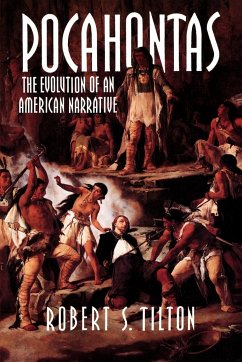From the time of its first appearance in the writings of John Smith and his contemporaries, the story of Pocahontas has provided the terms of a flexible discourse that has been put to multiple, and at times contradictory, uses. Centering around her legendary rescue of Smith from the brink of execution and her subsequent marriage to a white Jamestown colonist, the Pocahontas convention developed into a source of national debate over such broad issues as miscegenation, racial conflict, and colonial expansion. At the same time, the literary figure of Pocahontas became the most frequently and variously portrayed female figure in antebellum literature, serving as a prototype both for the beautiful "Indian princess" of the frontier romance and for the heroines of countless "rescue" narratives. In Pocahontas: The Evolution of an American Narrative, Robert S. Tilton draws upon the rich tradition of Pocahontas material to examine why her half-historic, half-legendary narrative so engaged the imaginations of Americans from the earliest days of the colonies through the conclusion of the Civil War, as indeed it still does today. Drawing upon a wide variety of primary materials - historical narratives, paintings, dramatic renditions, fictional accounts - Tilton reflects on the ways in which the romantic and exceptional myth of Pocahontas was exploded, exploited, and ultimately made to rationalize dangerous preconceptions about the Native American tradition.
Hinweis: Dieser Artikel kann nur an eine deutsche Lieferadresse ausgeliefert werden.
Hinweis: Dieser Artikel kann nur an eine deutsche Lieferadresse ausgeliefert werden.








